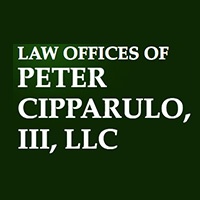Zarephath RICO Act Lawyer, New Jersey
Sponsored Law Firm
-
 x
x

Click For More Info:
-
Law Office of Mark S. Guralnick
55 Madison Avenue 4th Floor Morristown, NJ 07960» view mapCriminal Defense Law Dedicated. Fearless. Successful.
Mark S. Guralnick and his legal team have helped clients throughout the USA and across the world by applying unparalleled dedication and hard work to each case.
800-399-8371
Not enough matches for Zarephath RICO Act lawyer.
Below are all Zarephath Criminal lawyers.
Peter Cipparulo
✓ VERIFIEDCriminal, Motor Vehicle, Divorce & Family Law, Accident & Injury, Lawsuit & Dispute
Mr. Cipparulo was graduated magna cum laude and Phi Beta Kappa from Rutgers College in 1987 and was graduated from Seton Hall Law School in 1990. ... (more)
Mark D. Imbriani
Real Estate, Criminal, Business, Bankruptcy & Debt
Status: In Good Standing Licensed: 40 Years
FREE CONSULTATION
CONTACTCraig Voorhees
Criminal, DUI-DWI, Social Security -- Disability, Traffic, Workers' Compensation
Status: In Good Standing
FREE CONSULTATION
CONTACTFREE CONSULTATION
CONTACT Mark Guralnick Morristown, NJ
Mark Guralnick Morristown, NJ AboutLaw Office of Mark S. Guralnick
AboutLaw Office of Mark S. Guralnick Practice AreasExpertise
Practice AreasExpertise

